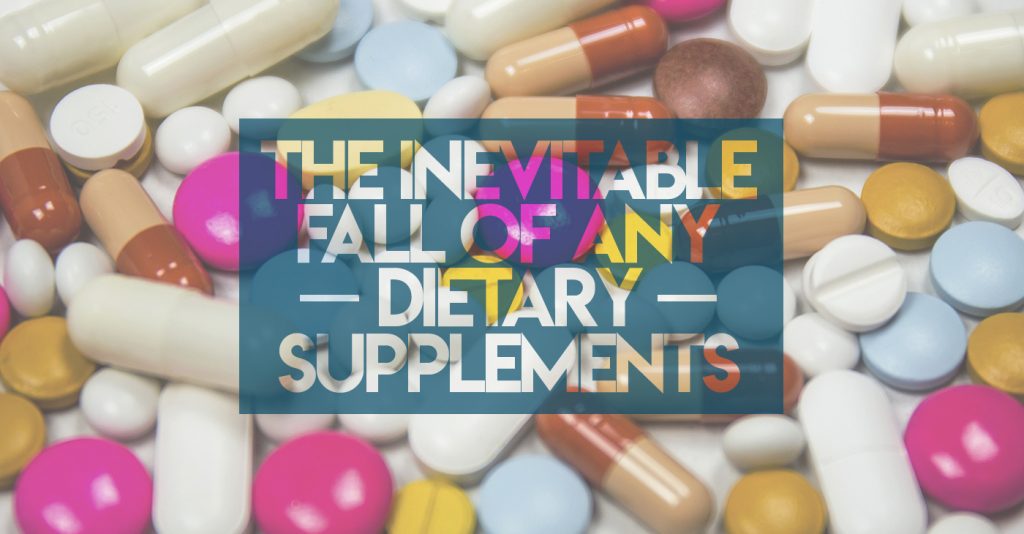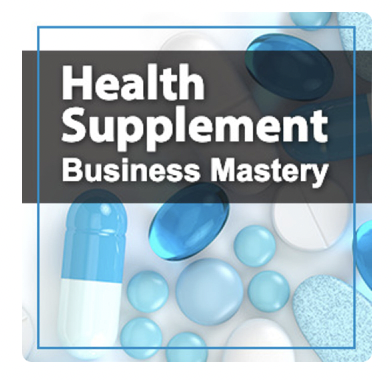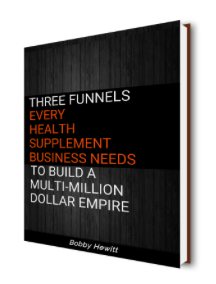
Everything has a cycle including your supplement product. Let’s look at dietary supplement drink-mixes as an example.
The idea of drinking your supplements has been around for a long time. It’s been common practice to add vitamin D to milk as far back as the early 1900s.
In fact, getting your vitamins by means of not swallowing a capsule goes beyond well drinks. During the 1940s, Continental Baking began adding vitamins and minerals to Wonder Bread as part of a government-sponsored program.
The idea of fortified foods has died down quite a bit in the last 50 years. And cow’s milk is now on the bad-for-you drink list. But the drink mix craze is still at the forefront of the dietary supplement world today. In fact, the Nutrition Business Journal (NBJ) estimates 16% growth for the health drink category alone.
On the main stream side of things, I’m seeing supplement companies offering drinks like Muscle Milk. Which is no surprise since the drink category, consists primarily of protein-centric ready-to-drink beverages.
In the online direct to consumer world, Organifi has been in the drink mix game for a long time starting with their flagship supplement, Green Juice, before expanding into many more drink options. More recently, I’m seeing new products emerge like Camel Milk offering a good alternative to a ready-to-drink functional beverage.
There are several key growth drivers for functional drink beverage market, which include:
- Convenience. (Which is first and foremost.)
- Manufacturing improvements in the ready-to-drink production capabilities.
- Advancements in flavor and texture. (Taste is of primary importance in this market. But we shouldn’t discount texture.)
The growth around this sector can be attributed to the ready to drink options over the mix options on the market, partly due to the taste and textures available. Due to the nature of the product, drink manufacturers are able to put different textures into ready-to-drink beverages compared to those used in mix-at-home powders.
Drinking your supplements is no longer enough, despite the category growth
The majority of growth in this segment is on the ready to drink side, not drink mix products, which has been the golden child of direct response supplement companies due to the low costs and high value proposition for consumers.
Since supplement drinks are nothing really new, marketers need to tap into a new unique mechanism, just like Wonder Bread and milk did back in the 1940’s.
For the majority of ready-to-drink products, protein is the primary functional ingredient. Marketers such as Muscle Milk are keying in on that unique mechanism. But using protein as a hook deserves a closer look.
We need to take a look at the marketplace to really understand what’s going on here. That approach is part of our proprietary 4 Framework Growth Method to help a direct to consumer dietary supplement companies optimize revenue.
The 4 Framework Growth Method comprises four essential frameworks that are required to meet the primary goal of any online health company: to increase your profits, so you can expand your business and make a bigger impact on the world.
The message that’s paramount in the marketplace is that, both carbohydrates and fats are villains of health. This belief leaves protein virtually untouched. At least for now…
Looking at this through one lens or another of the 4 Framework Growth Method, the Supplement Buying Forces Lens. The belief in the marketplace is that: Nobody believes eating too much protein will lead to getting fat.
Although healthy fats have made a huge comeback. The perception of protein as fuel is still strong in the collective consciousness. Even though protein is technically not a fuel, it has fueled the Paleo and Ketone craze.
However, not all protein is created equal. There’s Casein protein, Pea, Hemp, Brown rice protein, egg protein, mixed plant protein and Whey protein. These are commonly touted as the 7 best types of protein powders.
We’ve seen the specific type of protein used as a unique mechanism for years. One strong example comes from the direct to consumer supplement company BioTrust, positioning their whey protein product over other types as the reason why it works. Leveraging two other buying forces, hope and trust.
A Unique Mechanism, is the thing within your product, that delivers the results to your prospect. It is the reason why your product works. And that which gives them hope. Learn more about the three types of Unique Mechanisms here.
Recently Doctor Gundry, another direct response dietary supplement company, has taken a unique stance using a protein hook.
This goes against this belief in the marketplace, that: Eating protein will keep the fat off.
This against-the-grain stance is one of the key factors that make a good hook.
A direct response marketing hook is an idea that is interesting, enough to jolt the visitor. It’s designed to entice a visitor to want to know more. To draw them into your marketing story. Learn how the Big Idea is tied to the marketing hook.
In the case of Dr. Gundry, that’s exactly what it does.
The hook to one of his video sales letters (VSL) is this:
The right protein can help you lose weight but the wrong one can destroy your health.
The curiosity created in the hook does a couple of things.
- It makes you curious. You want to know which is the RIGHT protein.
- It also makes you a bit worried that you might be eating the WRONG protein. That bit of fear casts doubt. And you begin to wonder… could that be the reason why it is difficult for me to lose weight?
- It makes you question the belief that protein was ever good for losing weight. This doesn’t add up with what you know. That dissonance wants to be rectified. By adding specificity to the existing belief it divides protein up into good and bad protein.
Belief is at the fundamental bedrock of these self stories and our motivations. It’s one part of the health buying decision framework we use to optimize health businesses. Learn more about how belief effects the decision to buy here.
The concept of there being a good and bad side of things already exists in many aspects of health. There’s a “good cholesterol” HDL (high-density lipoprotein) and a “bad cholesterol” LDL (low-density lipoprotein). Higher levels of HDL cholesterol are associated with a lower risk of heart disease.
The idea of a hook and big idea are core concepts in direct response marketing. A good big idea is one that grabs attention. It has to be new, unique, compelling and interesting to your market. To learn more about the big idea and a framework on how to come up with one for your health marketing, click here. The big idea is super important because it drives all your marketing… at least for a time.
The Inevitable Fall of Any Dietary Supplement
Just as everything has a natural cycle, so do unique mechanisms, hooks and product categories like health drinks.
The inevitable fall of the drink-mix market is a natural progression of marketplace sophistication.
As people that make up the health marketplace move from one stage to another, the market as a whole matures. In general, the health market is very sophisticated compared to others.
Click here to learn more about marketplace sophistication and how it effects the marketing of your health product, trust and how it impacts the promise your product is making on the prospects buying decision.
All markets have a lifecycle that eventually comes to a completion only to start over again with a new unique mechanism, hook, and or product category.
Discover the 3 funnels that can help your health supplement business succeed.

Listen to the Health Supplement Business Mastery Podcast for for dietary supplement entrepreneurs and marketers.



